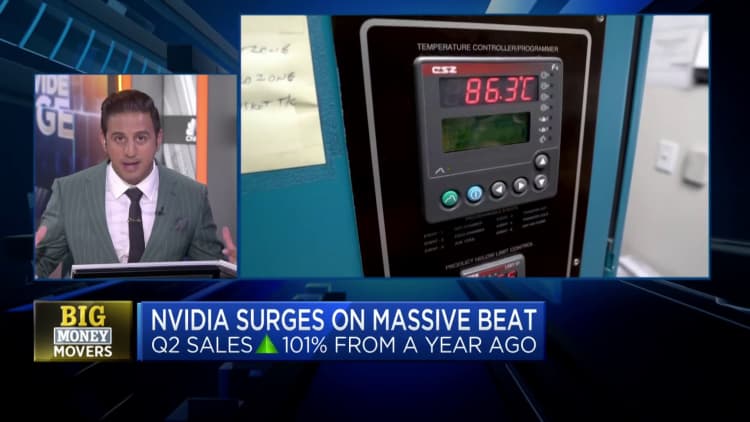
Nvidia issued a fresh warning that further U.S. export curbs on its chips to China would risk a “permanent loss” for American semiconductor firms to lead in one of the world’s largest markets.
Several reports earlier this year suggested Washington was considering new export restrictions on artificial intelligence-related chips, the likes of which Nvidia designs. This follows rules introduced last year that restricted Nvidia from selling its top-end A100 and H100 graphics processing units to China.
“We believe the current regulation is achieving the intended results. Given the strength of demand for our products worldwide, we do not anticipate that additional export restrictions on our data center GPUs, if adopted, would have an immediate material impact to our financial results,” Nvidia CFO Colette Kress said on the company’s earnings call on Wednesday.
“However, over the long term, restrictions prohibiting the sale of our data center GPUs to China, if implemented, will result in a permanent loss of an opportunity for the U.S. industry to compete and lead in one of the world’s largest markets.”

Nvidia previously introduced A800 and H800 chips — which are modified and slowed-down hardware — to comply with the U.S. export controls.
This warning is not new. Kress in June said that the U.S. semiconductor industry could be hit by further curbs on chip exports.
But the comment highlights the chipmaker’s opposition to further restrictions in one of its most significant markets. China accounts for 20% to 25% of Nvidia’s revenue in its data center business, its biggest unit — whose sales grew 171% year-on-year to a record $10.32 billion in revenue in the June quarter.
The company reported overall blowout financial results for the June quarter, with earnings and revenue smashing through expectations.
The U.S. has said its export restrictions aim to stop China from obtaining technology that could have military uses. The two superpowers have been locked into a battle over technology supremacy for the last few years, with semiconductors caught in the middle.
By most accounts, Nvidia’s chips — which go into data centers and are able to facilitate the training of the huge AI models such as those that underpin ChatGPT — are ahead of rival offerings. Chinese companies that train huge data sets also rely on these chips.
Despite the geopolitical overhang, Nvidia’s stock has rallied more than 220% this year, and the company is expecting revenue growth to nearly triple year-on-year in the September quarter.